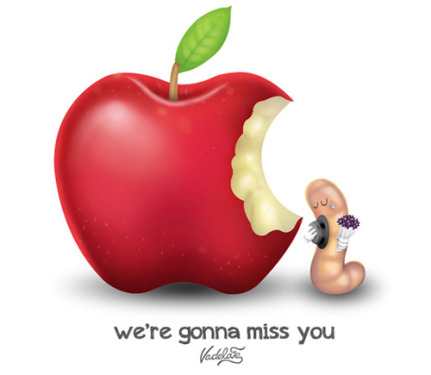What You Should Know About Pancreatic Cancer

In October 2011, the deaths of the two celebrities added two strong inks to "pancreatic cancer." They were Ralph Steinman, who had just won the 2011 Nobel Prize in Medicine, and Steve. Jobs, founder of Apple.
(Stevenman's family attended the press conference at Rockefeller University in New York, USA)
The Canadian scientist Ralph Steinman, who won the Nobel Prize in Medical Physiology on October 3, died on September 30th at the age of 68.
The Nobel Prize is not awarded to people who have died in principle. Given that this was the first time, the Nobel Foundation Commission held a temporary meeting on the afternoon of the 3rd and decided not to cancel Stanmann's award.
Rockefeller University said: "He was diagnosed with pancreatic cancer four years ago. He used his own discovery of immunotherapy and he extended his life through a dendritic cell."
On October 6, 2011, Steve Jobs, who died of cancer, died at the age of 56. This is the end of his legend.
What links the two together is not science, technology, hobbies, hobbies, etc., but all the good things. They just died of pancreatic cancer, which is claimed to be the king of cancer.
In the face of disease, human beings are humble and small. We always wait until we have overdrawn our bodies before we are upset.
The main function of the pancreas is digestion. Pancreatic cancer is a disease of the digestive system. Therefore, the daily diet has a great impact on the pancreas. You should know the following about pancreatic cancer:
1. There are three major symptoms of pancreatic cancer in the early stages, including jaundice, abdominal pain, and wasting;
2. Smoking is a recognized risk factor for pancreatic cancer;
3. Ingestion of excessive coffee (more than one cup) daily causes pancreatic cancer;
4. High-protein, high-cholesterol diets and refined flour foods may increase the risk of illness. Such as fat, lamb, floss, shellfish, peanuts, sesame, pastry, etc.;
5. Do not eat too much salty and spicy food. Such as onion, garlic, ginger, pepper, pepper, etc.;
6. Avoid mildew, fried fried, smoked, pickled foods, such as salted fish, pickles, fried foods, pastry, butter , ice cream , etc.
7. Eat light and easily digestible, low-fat diet, eat less;
8. Eat more immune, anti-pancreatic cancer foods, such as vegetables, mushrooms, beans.
Many people will disdain the above list?
"If I can't eat it, I can't eat it. Everyday diet is like liberation. Let's just let me hang out!" Many people have this idea.
Then take a look at the part that will be removed after the occurrence of pancreatic cancer:
Pictured above is the Whipple surgery chart performed by Steve Jobs in 2004. The purple part of the picture, the gallbladder + duodenum + pancreas, was mostly removed.
Just imagine that if there are so many places that have been cut off, there are fewer things that can be eaten. This affects not only oneself but also the family. The high medical expenses and the pressure to take care of the patients are not borne by oneself and passed on to their loved ones. What's more, even if you have money, you cannot fight cancer.
Therefore, what kind of choice is for everyone, but don't forget, how we treat our own body, our body will return our lives.
Accompany Chair,Hospital Accompany Chair,Folding Accompany Chair,Accompany Sleeping Chair
jiangyin chenyi medical technology co.,ltd , https://www.chenyimed.com